
https://www.youtube.com/watch?v=hxuqYUyfpOI
How to Stop Seeking and Start Building Life Purpose _ Coaching for Purpose
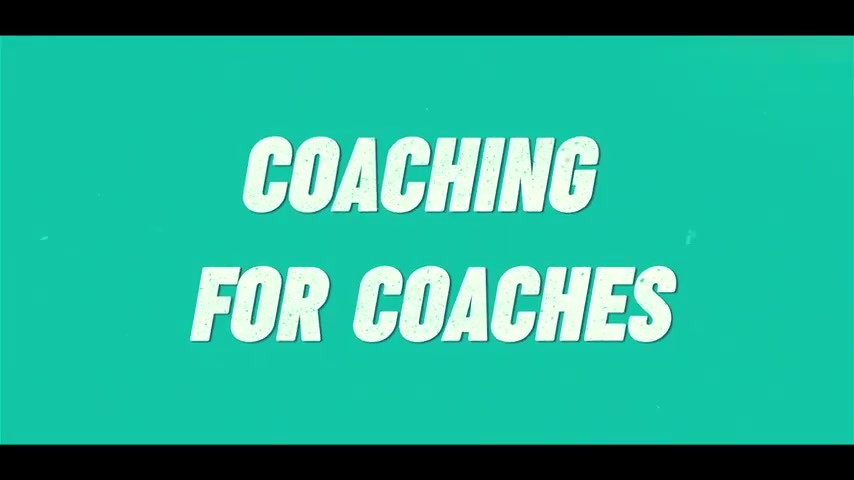
I wanna share a few key ideas about purpose that will help you as a coach and help you coach your clients on purpose .
When clients have a clear why for what they're doing , they feel more motivated to change and grow .
And when you as a coach , feel your purpose , clearly , it helps you create a context for your clients to feel and find their purpose .
Frequently .
When people are talking about purpose , they imagine it exists outside of themselves .
And they talk about finding purpose going on this quest to read something or serve something or follow something that's going to create purpose in their lives .
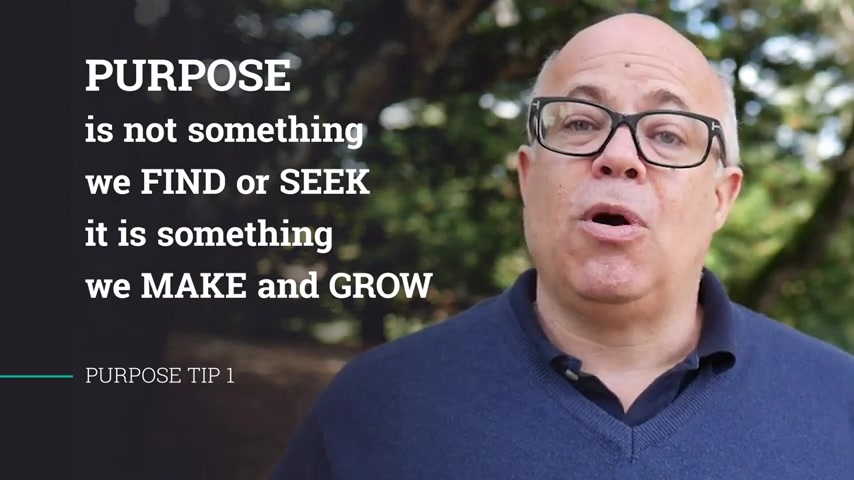
The research about purpose suggests something different that it's actually when we commit our time and energy , we become more emotionally invested in an idea that idea grows emotional power .
It's like charging a battery or , I don't know , have you ever uh tried to make a magnet ?
Remember when you were a kid taking a piece of metal and rubbing it and rubbing it and rubbing it and eventually it becomes magnetized .
Purpose is work .
Now , the bad side of that is that there's not this holy grail that you're gonna find somewhere that's gonna create purpose in your life .
But the good side of that is that purpose is something you can create by working on it , implicit in .
This is the importance of feelings .
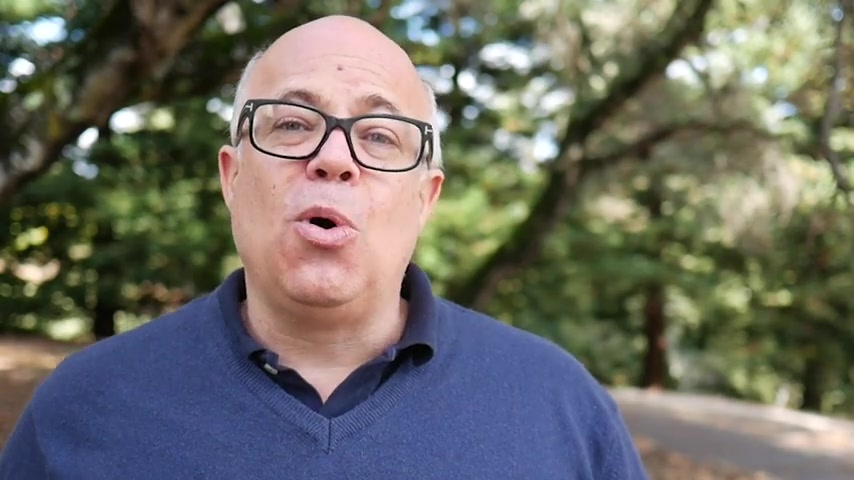
Purpose is something that you experience , you can feel it pulling you and when you commit to it and you work on it and you serve that purpose , that emotional power grows .
This is an important clue about the role of emotional intelligence in purpose .
On the one hand , emotions are clues about what matters .
Emotions help us pay attention to an opportunity and threat .
And when we have big feelings , it's because we're perceiving something big .
We can imagine emotions kind of like indicator lights guiding us towards an emergency exit , except in this case , it's an emergency exit , not out of a dangerous airplane , but into the world that we want to step into these indicator lights .

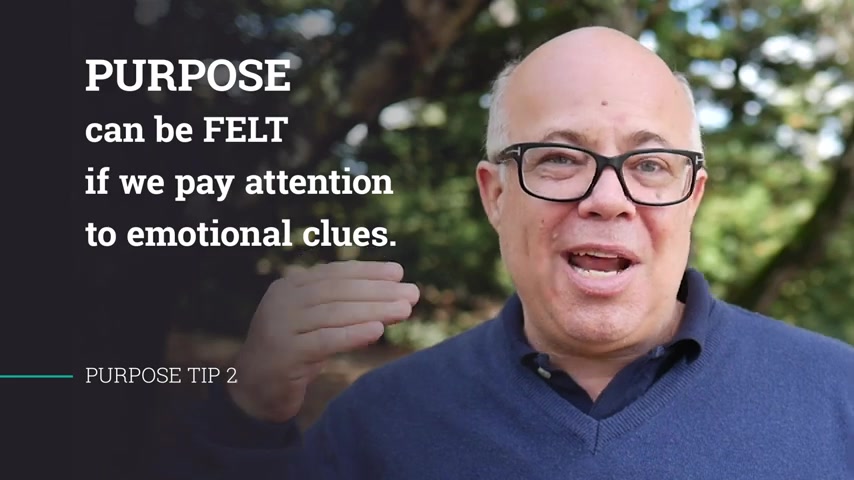
They're not giving us a clear direction , they're not arrows saying go here , they're little nudges , they're little questions , they're little whispers from us to us saying notice this , pay attention to this and as we feel those emotions more strongly and we tune into them , they can offer us little glimpses into who we want to be and how we wanna step forward .
This is one reason why emotional intelligence is so important for you as a coach because you become more attuned to your own emotions .
You have this ability to help tune in and notice your client's feelings and to hear when there's something in their voice to hear when there's , they're talking about something you can say , I hear something in what you're saying .
There's a message there .
Would you be willing to tell me more about that ?
And these little emotional glimmers are about the energy and the possibility that purpose is offering .
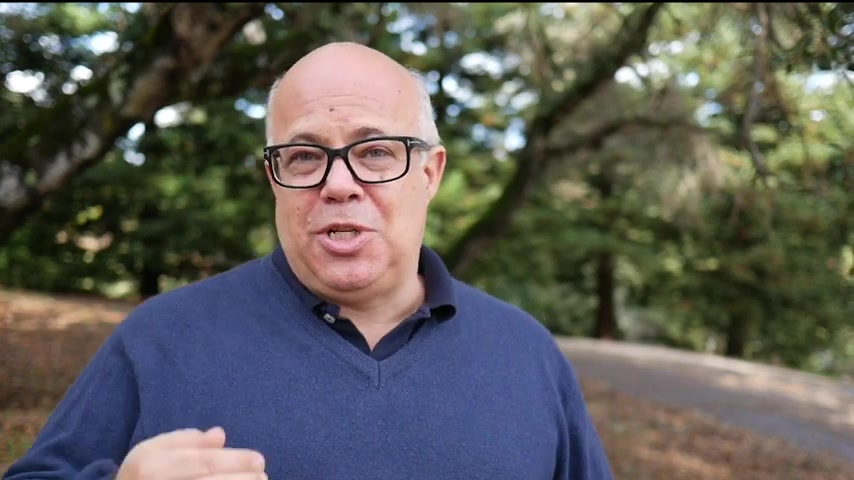
The last piece I want to share about purpose is the confusion that sometimes people have about objectives and goals and meaning and values and purpose .
These words get conflated and we start talking about my purpose is to achieve this goal .
If it's something you're going to achieve in the short term , it's probably not purpose or my purpose is to do this thing .
And I would suggest that purpose is not so much about doing .
It's actually more about who you're gonna be .
It's about what you're adding to the world through how you show up , not just what you do .
I think we get very addicted to the to do list that a lot of the times we're putting all these things on the to do list and crossing them off because it's gratifying and it's serving us in lieu of stepping into what really matters .
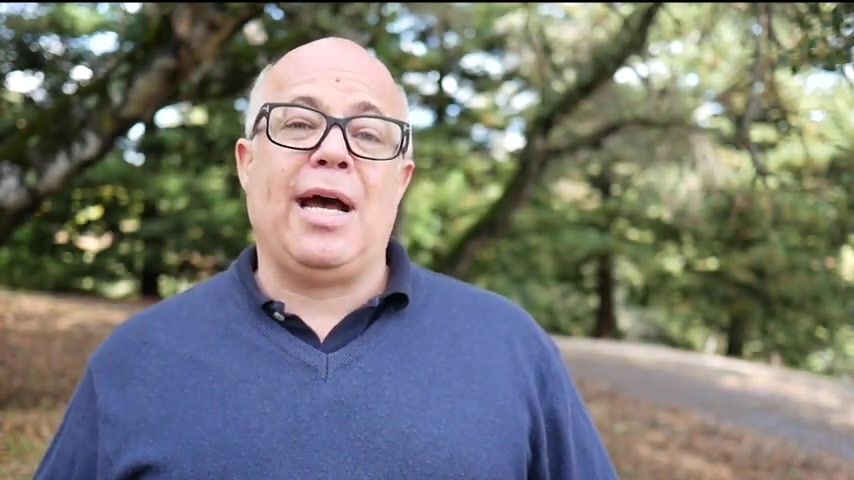
And I would suggest that sometimes being busy with doing is actually in the way of us figuring out who we really want to be .
So what happens if we slow down a little bit ?
And instead of saying I'm gonna do this and this and this , we think about who do I wanna be in this situation .
And it's an incredibly powerful question to ask yourself as a coach , who do you want to be as a coach ?
And for you to ask your clients to help sort out this confusion between objectives and doing and , and purpose .
I would suggest considering two axis , the first is moving from short term to long term .
And I would suggest that purpose is not about the next month or the next year or maybe even the next decade , maybe purpose is about 50 or 100 years away .
What are you really trying to contribute in the long term ?

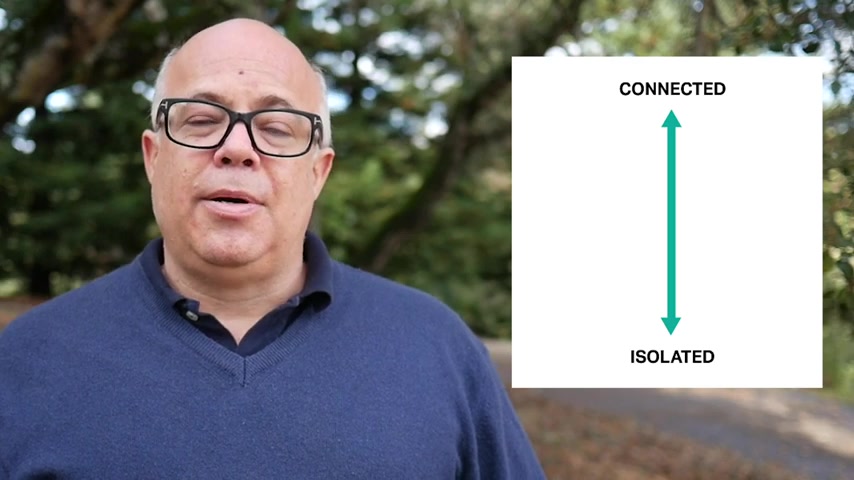
The second axis to consider is about disconnection versus connection when we're in a place of isolation and we're worried about our own needs .
When we're worried about our own wants , we get caught up in ego and it's really easy to get confused between these urgent pressures of survival versus the deeper drives of thriving purpose .
I would suggest is in a space of connection , connection to self and others , connection to the earth under your feet , connection to community , connection to a larger story .
And when you can feel that sense of connectedness , maybe that's more a clue about purpose .
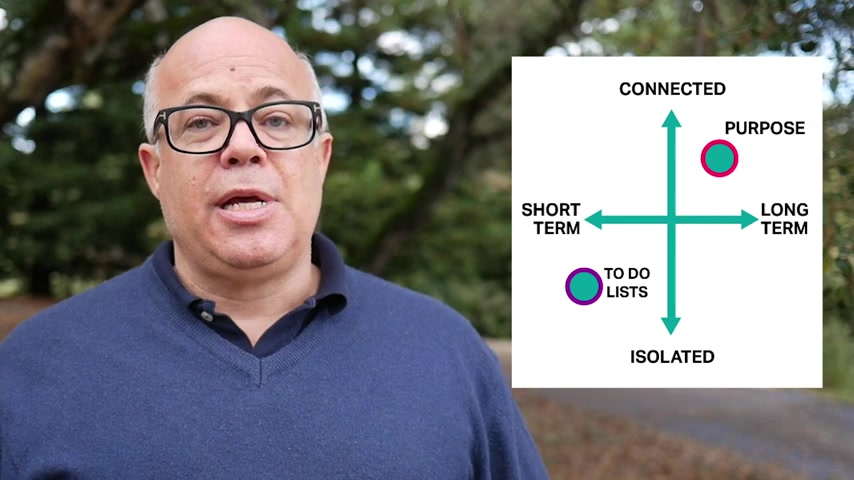
So as we move towards that dimension of connection and move towards that long term , I think that's where we're gonna find that purpose is growing .
So to recap consider the difference between seeking purpose outside yourself and creating purpose , investing in purpose .
Remember that purpose is connected to our emotions .
We can feel purpose , we can feel it calling us and emotions are clues .
And third consider that purpose is long term and connected .
And that as you move towards that long term connected direction , you might be in a place of discovering what's really gonna motivate you , not about what to do but who to be .
Are you looking for a way to reach a wider audience and get more views on your videos?
Our innovative video to text transcribing service can help you do just that.
We provide accurate transcriptions of your videos along with visual content that will help you attract new viewers and keep them engaged. Plus, our data analytics and ad campaign tools can help you monetize your content and maximize your revenue.
Let's partner up and take your video content to the next level!
Contact us today to learn more.